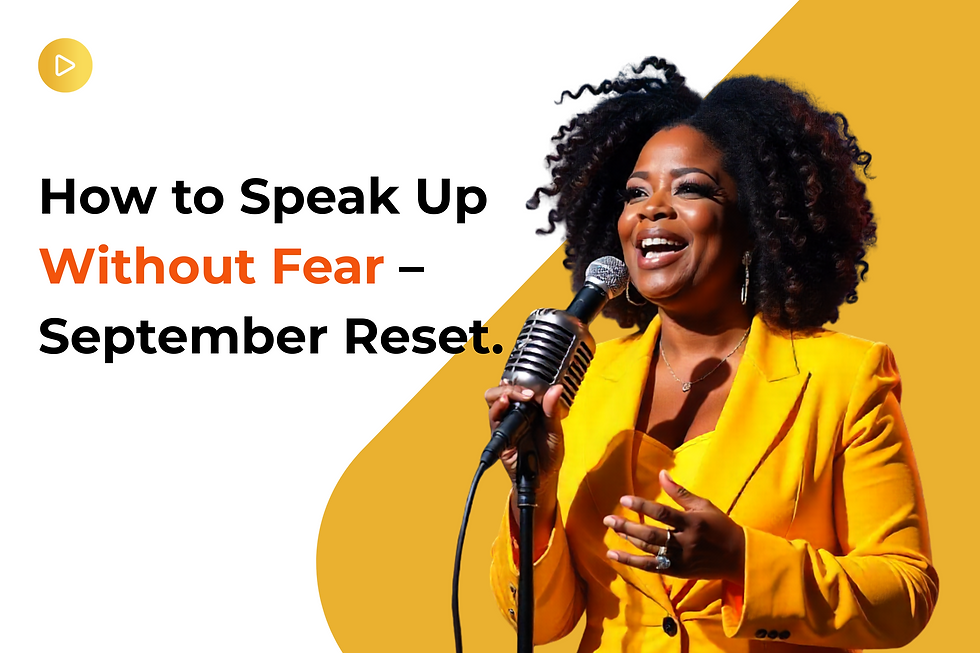3 tips on how to approach tough conversations
- Oct 21, 2024
- 2 min read

Understanding Tough Conversations in Leadership
Tough conversations are inevitable in leadership. Whether it’s delivering feedback, addressing underperformance, or discussing sensitive issues, these conversations are a fundamental part of leading a team effectively.
Leaders often face the challenge of balancing empathy with accountability, making tough conversations both an art and a skill that must be developed.
Why Tough Conversations Are Essential
Having difficult conversations is crucial for maintaining team cohesion and ensuring organisational success. Avoiding these discussions can lead to unresolved issues that negatively affect team morale and productivity.
A leader who masters tough conversations builds trust, improves team performance, and fosters a culture of transparency.
Examples of Tough Leadership Conversations
Performance Reviews: Addressing poor performance or lack of improvement.
Conflict Resolution: Mediating disputes between team members to ensure harmony.
Termination Discussions: Letting go of an employee while maintaining professionalism and respect.
How to Approach Tough Conversations
Prepare Well: Understand the issue and gather facts before initiating the conversation.
Stay Calm and Composed: Approach the situation with empathy but remain firm in delivering the message.
Encourage Dialogue: Allow the other person to express their perspective and offer solutions.
Benefits of Tough Conversations in Leadership
Improved Performance: Clear feedback helps employees understand expectations and areas for improvement.
Enhanced Trust: Honest communication builds a stronger bond between leaders and their teams.
Fostering Growth: Tough conversations create opportunities for personal and professional development.
Conclusion
Tough conversations are a vital aspect of effective leadership. By handling them with clarity, empathy, and assertiveness, leaders can cultivate stronger teams, resolve conflicts, and steer their organisations toward success.
Frequently Asked Questions
What makes a conversation tough for leaders?
Tough conversations often involve delivering difficult feedback or addressing conflicts that may provoke emotional reactions.
How can leaders improve their skills in tough conversations?
Leaders can improve by practising active listening, preparing well, and maintaining a balance between empathy and firmness.
What is the impact of avoiding tough conversations?
Avoiding tough conversations can lead to unresolved issues, declining team morale, and ultimately, underperformance.
Do visit Transformation Leader (T4L) courses page and explore more courses on Transformational Leadership




Comments